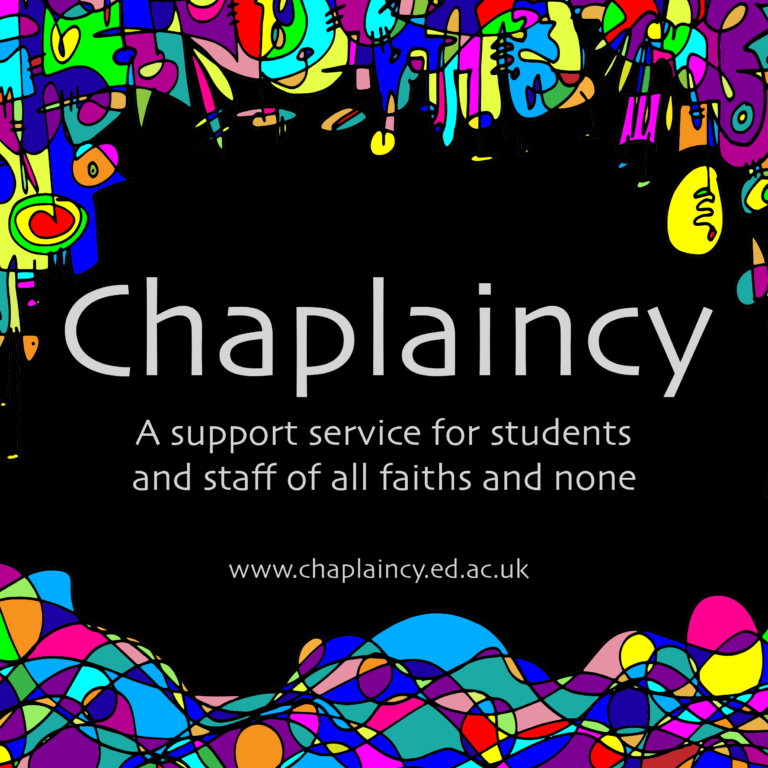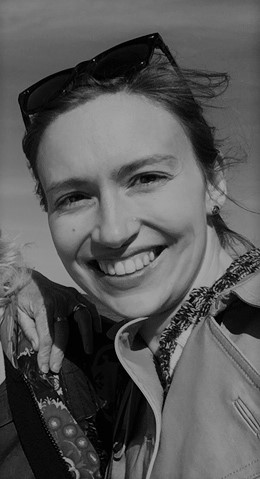
In post, Dr Kitty Wheater the University’s Mindfulness Chaplain shares the genesis and purpose of the weekly MindLetter which offers mindfulness techniques and a suggested practice for the University of Edinburgh community as part of the Chaplaincy’s pastoral response to the COVID epidemic…
When I lost my voice at the end of January following an infection, it was a spanner in the works for someone who runs the University Chaplaincy’s mindfulness programme. I wondered how to cover the mindfulness drop-ins that still ran three times a week across campus. COVID was coming, but, like my voice, was little more than a whisper. I took the question to Harriet Harris, the University Chaplain. ‘Why don’t you write them a lovely, nurturing email?’ she said. That week, I wrote to my drop-in attendees about what happens in the mind during craving and aversion. The weekly MindLetter was born.
It was only ever going to be a temporary stop-gap. Then, suddenly, we all stopped going to the office. Pastoral care shifted overnight: not only in medium – we all moved online – but also in kind. The Chaplaincy is a radar for the concerns of students and staff: mental health is omnipresent, as is the age-old desire to live a good life. These underpin the ordinary struggles of work, study, performance, success, creativity, service, and love of all kinds. But it has been eighty years since our collective lives last changed so rapidly and gravely.

When we went into lockdown, moved work-life into the corners of our kitchens, and stopped making each other tea in the common room, the ennui, anxiety, loneliness, boredom, irritation, and grief that are all part of the human condition crystallised, en masse, into new forms. We couldn’t hug our friends, or go to the gym, or read anything from a reading-list that wasn’t online. Small things, but given time, momentous, like shifting fault-lines in the ground. And then: we couldn’t visit loved ones in hospital, and some of us, when we became ill, couldn’t breathe, get out of bed, or see a doctor.
Things changed at the Chaplaincy. Our Listening Service moved online and over the phone, and we saw more requests for contact over email, from students at home short of personal space. From a busy, connected campus, with people coming by on spec to sit on a comfortable chair in my office, we now no longer saw each other. Conversation existed only by appointment. The effects and affects of lockdown – flatness, low mood, or by contrast hyperactivity and anxiety – bubbled away in people’s homes, out of sight. We needed ways to bring them back into plain view.
The MindLetter’s head-start on lockdown proved fortuitous. Mindfulness, in its essence, is about shining a light on the automatic and invisible – and nothing is more automatic than fear, or more invisible than a lack of touch. But mindfulness is more than uncovering what distresses, or what must be overcome. Our internal resources can be just as automatic and invisible. Think how quickly neighbours rallied to help each other during the first wave. Think too of every moment of entrained expertise that goes into giving a lecture, or ventilating a sick patient – even how quickly we all learned to wash our hands – and you begin to sense how certain fundamental capacities of mind and body can be trained, cultivated, even if they have lain dormant for some time.

For people in our University community who had enough online meetings already; liked the privacy of reading and reflection; wanted to see their unspoken struggles voiced and articulated; and sensed their innate capacities of attention, curiosity, and love of life somewhat drifting in a pandemic, the MindLetter struck a chord. Each week, it explores a theme, links to relevant articles, and offers mindfulness techniques and a suggested practice. For trouble sleeping, you might relate to your chattering thoughts as if they were a waterfall: you can sit next to it, rather than fighting it. For a hyperactive mind, you might go to ground, deliberately sensing the feet on the floor, and your seat on the chair.
Writing about pandemic worry, the experience of chronic illness in lockdown, and the ‘skin hunger’ of touch deprivation, has resonated with many of you. In our Chaplaincy blog, For Times Like These, our team writes about summer wildflowers and bodywork, how to listen to and shake out fear, and how to notice the good on a hill walk. Posts on Zoom fatigue and digital burnout hit a nerve, and have been viewed thousands of times. Students and staff press reply to the MindLetter, and tell me what’s on their mind. ‘Thank you for these little drops of refreshment and hope every week,’ someone wrote to me last month. ‘I hope you don’t mind, but I shared it with some professionals I work with,’ wrote someone else. (I never mind.)
Some things are easier to write than speak, even without a croaky voice; and some things are more nourishing to read, and sit with, and read again over a cup of tea, than to hear across tinny speakers. Writing about life and the mind will never replace a smile, a question, and a ready reply – even if they take place online – but after 35,000 words of the MindLetter, and only slightly fewer for Times Like These, we foresee that writing and reading will continue to occupy a potent place in pandemic pastoral care.
Further information:
- You can subscribe to the MindLetter by emailing mindfulness@ed.ac.uk. Live mindfulness lunchtime online drop-ins also run twice-weekly on Zoom.
- Visit the Chaplaincy blog, For Times Like These. New posts weekly.
 Kitty Wheater
Kitty Wheater
Dr Kitty Wheater is the Mindfulness Chaplain, and runs the University’s mindfulness programme of courses, drop-ins, workshops, and day retreats for students and staff. She is a Mindfulness-based Cognitive Therapy practitioner, teacher-trainer, and supervisor, and Teaching Partner with the Oxford University Mindfulness Centre. She is also a social and medical anthropologist and writer.


